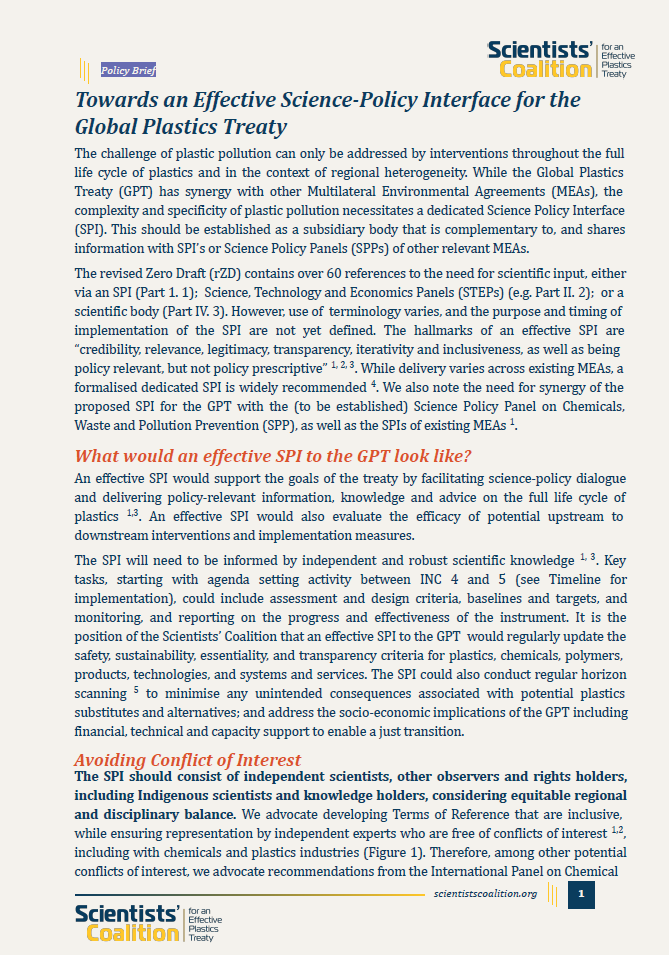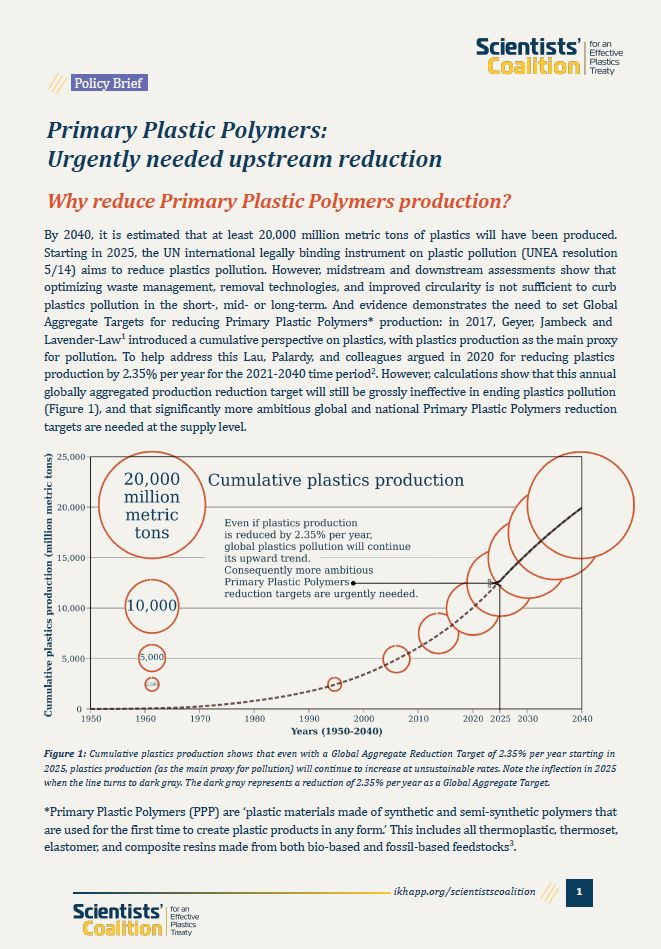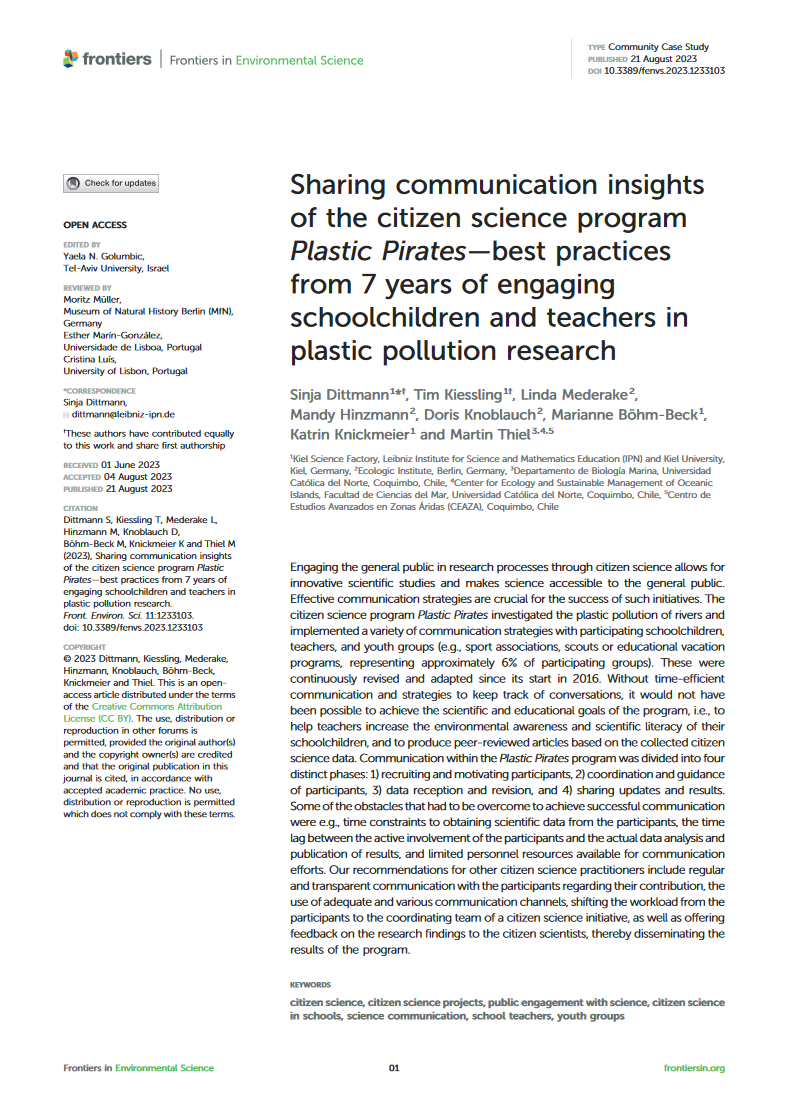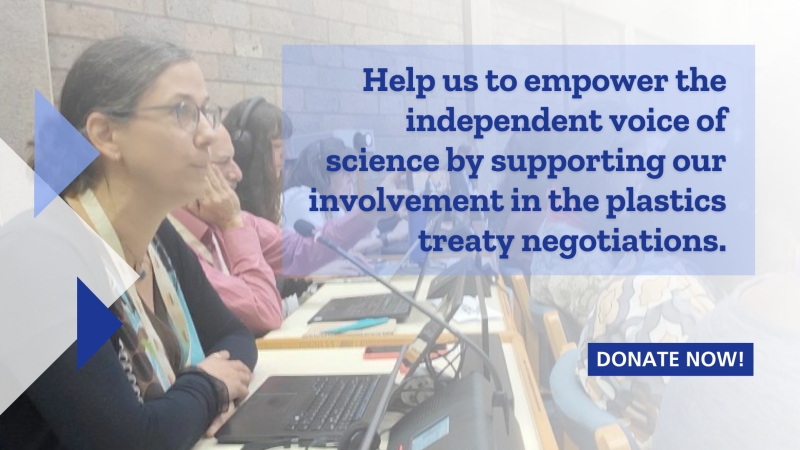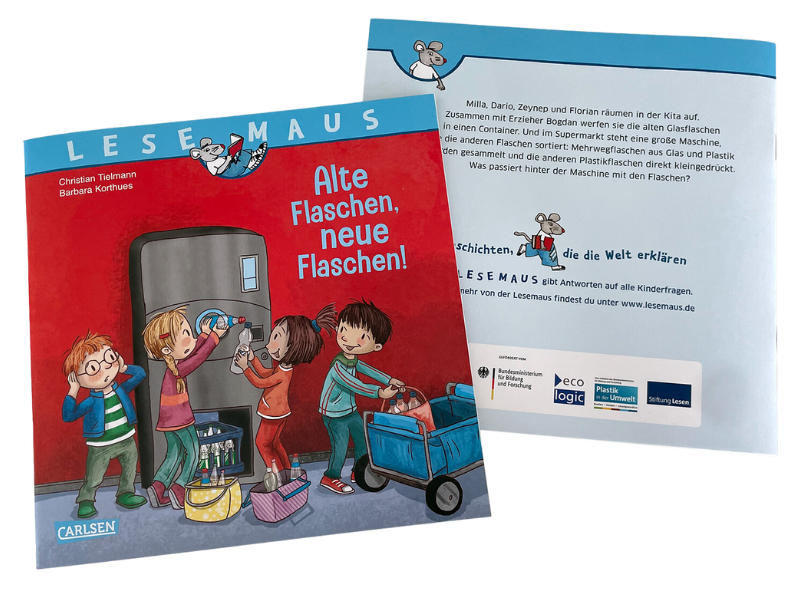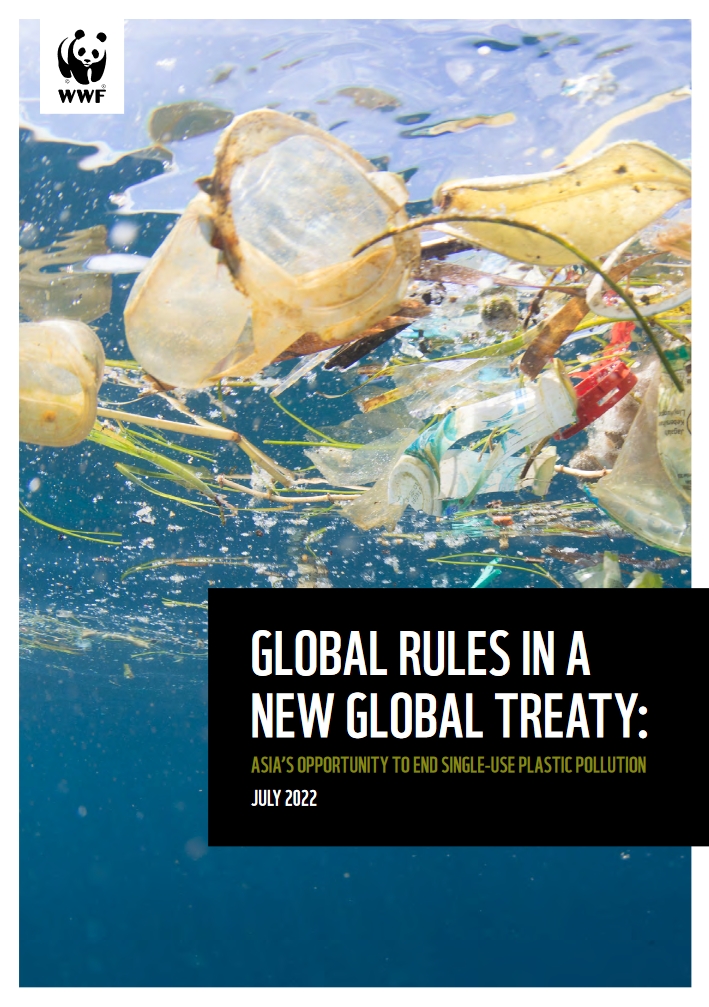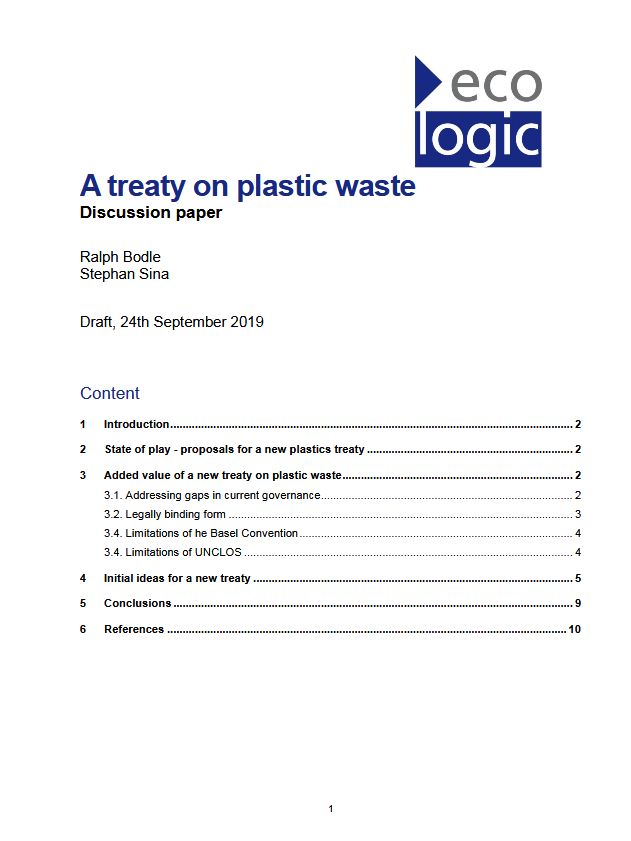Plastics Treaty Text Must Center Ecosystems
Letter in Science
- Publication
- Citation
Tessnow-von Wysocki, Ina; Wang, Mengjiao; Morales-Caselles, Carmen; Woodall, Lucy C.; Syberg, Kristian; Carney Almroth, Bethanie; Fernandez, Marina; Monclús, Laura; P. Wilson, Scott; Warren, Matt; Knoblauch, Doris; Helm, Rebecca R. (2023): Plastics treaty text must center ecosystems, Science, 2 Nov 2023, Vol 382, Issue 6670, pp. 525-526.
In this letter in Science, a group of scientists working on biodiversity and plastics – among them Doris Knoblauch from Ecologic Institute – argue that the future plastics treaty text must center ecosystems. This is because both, ecosystems and biodiversity have not only to be restored but also protected from pollutants throughout the whole plastic life cycle.
Plastic is not found in isolation, the authors argue. The current draft of the treaty contains terms like "hotspot," "accumulation zone," "cleanup," and "sectors," which primarily address the distribution and concentration of pollutants rather than the natural systems affected by these pollutants. Neglecting impacted ecosystems suggests that addressing plastic pollution can occur independently of ecological restoration. To enhance clarity and specificity, it is recommended to replace the existing terms with language that centralizes ecosystems, such as "habitats polluted by plastic products" or "ecosystems affected by plastic-associated pollution." This formulation articulates the treaty's fundamental objectives: the conservation and protection of ecosystems and biodiversity from pollutants throughout all stages of the plastics life cycle.
The letter was published shortly before the third round of the Intergovernmental Negotiating Committee to develop an international legally binding instrument on plastic pollution, including in the marine environment (INC-3), which is taking place from 13 to 19 November 2023 at the UN Environment Programme (UNEP) Headquarters in Nairobi, Kenya.
